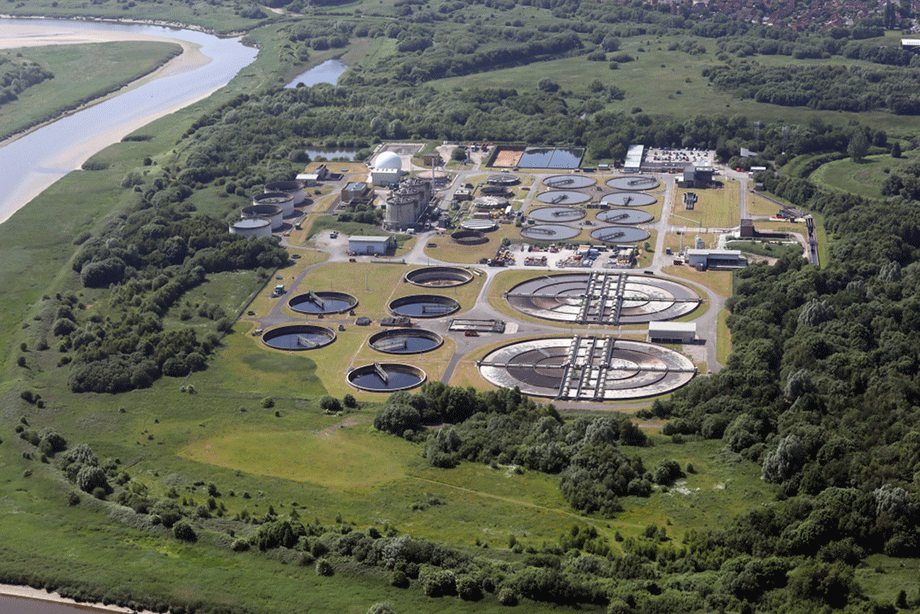The Marine Conservation Society has learned from the Environment Agency via a Freedom of Information request, that less than 10 per cent (686) of Emergency Overflows in the sewerage network are monitored for sewage discharges, of 7,016 across England.
Unlike Storm Overflows, Emergency Overflows should only be used when there is a mechanical, technical or physical failure in the sewerage network.
Storm Overflows were designed to be used when excess rainfall flooded the system resulting in diluted excess sewage leaving the system. Their overuse, particularly during dry weather, has been heavily publicised and criticised. By contrast, Emergency Overflows are designed to be used as a very last resort because they release raw, undiluted sewage into the environment.
Emergency Overflows are therefore required by the Environment Agency to have a number of key protection measures in place to prevent them from being used, including standby pumps and power, storage, telemetry warning systems, tanker access and over-pumping. Water companies should put enough preventive measures in place to stop Emergency Overflows from ever being required.
Yet despite this, of the 233 Emergency Overflows that are known to have discharged in 2022, more than 60 per cent (144) discharged untreated sewage more than once.
The Marine Conservation Society is concerned that this is only a snapshot of how terrible the picture is.
Laura Foster, Head of Clean Seas at the Marine Conservation Society, said, “Emergency overflows are designed to be used as a last resort. Yet, from the tiny amount of data we do have, we can see that these discharges aren’t an uncommon occurrence, and there are repeat offences.
“It’s not clear why, after the first incident, measures aren’t being taken to prevent another emergency overflow discharge. Water companies are paid to treat our sewage and they need to be fulfilling this duty. The failure to put procedures in place, which they’re required to do, is putting marine life, and people, at risk.”
The highest requirements are put on the Emergency Overflows which could discharge raw sewage directly into waters where shellfish are farmed. These include the requirement for Electronic Monitoring and notifying local food authority or environmental health authority if any emergency discharge occurs. Last year data from 318 Emergency Overflows were provided for locations with the potential to discharge into Shellfish Waters. Of these, 86 discharged into Shellfish Waters a total of 491 times, meaning that they had an average of more than five discharges in the year, putting businesses and people at risk.
Untreated sewage poses a risk to marine life and those who swim in affected waters. It contains harmful chemicals, bacteria and viruses. In addition, it’s not just invisible toxins that are causing problems. Last year, sewage-related pollution, such as wet wipes and sanitary products, were found on 75 per cent of the beaches surveyed across England.
At present, Defra are ‘considering the inclusion of Event Duration Monitoring on all emergency overflows, with regulatory reporting requirements’, but with no timeline or targets in place, this could take years to come to fruition.
The Marine Conservation Society already has concerns over the timeline in making improvements to the sewage system in England. The charity is taking legal action against Defra for an inadequate plan to tackle sewage pollution. The legal case seeks to compel the Government to rewrite its Storm Overflows Discharge Reduction Plan 2022, to impose tighter deadlines on water companies and redevelop the Plan to effectively apply to coastal waters.
Emma Dearnaley, Legal Director at the Good Law Project, said, “These extraordinary figures suggest that the true scale of the sewage dumping crisis is even more shocking and devastating than we knew. Good Law Project is playing its part to end this environment scandal by supporting the Marine Conservation Society and others in a High Court challenge next month which seeks to compel the Government to impose much more robust and urgent targets upon water companies to clean up their act.”
Launched and funded by the Good Law Project, the Marine Conservation Society will stand as co-claimants on the case with Richard Haward’s Oysters, and surfer and activist, Hugo Tagholm. You can read more about the case, which goes to court on the 4th July, here.














